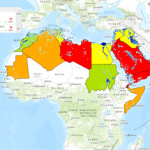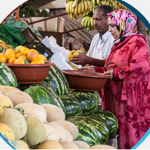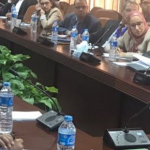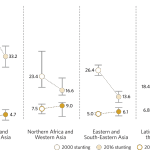Mariam Raouf, Yumna Kassim, Sikandra Kurdi, Tewodaj Mogues, Mai Mahmoud, Josee Randriamamonjy, James Thurlow, Manfred Wiebelt, and Clemens Breisinger
This paper describes an innovative agricultural and rural economic planning tool that will help governments and analysts in the design of agricultural investment plans: the (Arab) Agricultural Investment for Development Analyzer (AIDA). A policy challenge for all governments, including those in the Middle East and North Africa, is determining the appropriate allocation and quality of public spending to foster agricultural and rural economic growth, employment creation, and poverty reduction. The AIDA economic planning toolkit has been built using an economy-wide and minimalistic investment data approach to assist governments in meeting this planning challenge.





